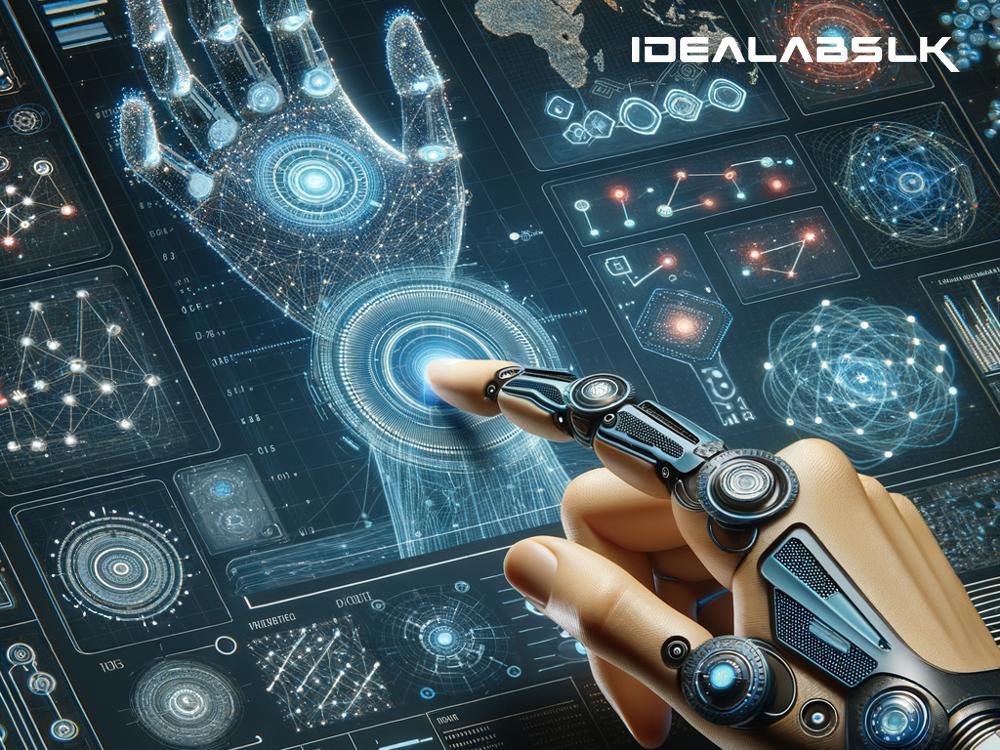How AI Will Revolutionize Data Collection in the Future
In the ever-evolving world of technology, Artificial Intelligence (AI) continues to be a game changer, especially in how data is collected. With the massive amounts of information generated every day, AI is set to transform traditional data collection methods into something far more efficient and insightful. So, how exactly will AI enhance future data collection? Let's dive into this fascinating subject.
Breaking Down the Walls of Traditional Data Collection
Traditionally, data collection has been a labor-intensive process, often requiring human intervention to gather and analyze information. This method not only consumes a significant amount of time but also has a higher risk of errors. However, with AI stepping into the arena, these challenges are rapidly becoming a thing of the past.
Real-Time Data Collection and Analysis
One of the most impactful changes AI brings to data collection is its ability to process information in real-time. Unlike the traditional method, where data analysis can take days or even weeks, AI systems can analyze vast amounts of data almost instantly. This means businesses and researchers can make informed decisions much faster, providing a significant edge in today's fast-paced environment.
Enhanced Accuracy and Reduced Human Error
Humans are prone to make mistakes, but AI operates with a level of precision that significantly reduces errors in data collection. By automating the process, AI ensures that data is collected consistently, following the exact same parameters each time, thereby enhancing the accuracy of the outcomes.
Deeper Insights through Advanced Analytics
AI doesn't just collect data; it analyzes it in ways humans can't. By recognizing patterns and correlations that might go unnoticed by human analysts, AI can provide deeper insights and more actionable intelligence. This ability can uncover new opportunities for innovation, optimize operations, and even predict future trends, giving organizations a considerable advantage.
Expanding the Horizons of What Can Be Collected
AI is not limited by the conventional boundaries of data collection. It can gather information from a variety of sources that were previously inaccessible or too complex to analyze, such as satellite imagery, sensor data, or vast amounts of unstructured online information. This capability opens up new avenues for research and insight that were unimaginable a few years ago.
Personalized Experiences
With AI, data collection becomes more personal. By understanding individual preferences and behaviors, AI can tailor experiences to meet the unique needs of each user. For businesses, this means being able to provide their customers with exactly what they want, sometimes even before they know they want it, leading to increased satisfaction and loyalty.
Predictive Analytics
One of the most exciting aspects of AI in data collection is its role in predictive analytics. By analyzing past and current data, AI can make predictions about future events or trends. This can help industries from healthcare to retail, forecasting outcomes with a high degree of accuracy and preparing for them effectively.
Ethical and Privacy Considerations
While the benefits of AI-enhanced data collection are immense, it also raises important ethical and privacy concerns. As AI systems become more adept at collecting and analyzing data, ensuring the privacy and security of this information becomes paramount. Organizations will need to establish strict guidelines and employ advanced security measures to protect sensitive data and maintain public trust.
Looking Ahead: A Data-Driven Future
The potential of AI to enhance data collection is immense, heralding a new era of efficiency, accuracy, and insight. As technology continues to advance, the future of data collection looks promising, with AI at its core driving innovation and discovery across all fields.
However, the journey does not end with technology alone. Ensuring that these advancements benefit society as a whole will require a concerted effort from businesses, governments, and individuals to address ethical considerations and ensure that data is used responsibly.
In conclusion, AI is setting the stage for a revolution in data collection, promising to turn the vast oceans of data into actionable insights that can drive progress, innovation, and personalized experiences. As we stand on the brink of this new era, it's clear that AI will not just enhance future data collection; it will redefine it.

